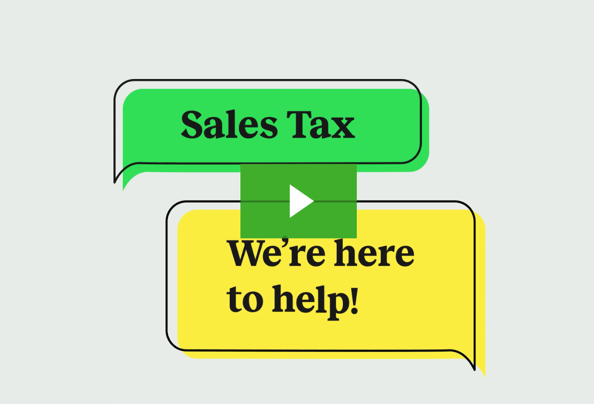Important sales tax updates and trends for 2023
by November 21, 2022
Between the pandemic, supply chain issues, and inflation, the last few years have been a rollercoaster. Consumers and businesses are tired of surprises and are searching for a glimpse of what 2023 has in store. But with so many uncertainties, it can be hard to determine what trends are coming. While we can’t predict exactly what 2023 will bring, we have been keeping an eye on a few sales tax trends that are important to know as you devise your compliance strategies for the coming year and more.
Modernization of sales tax laws
Earlier this year, we caught up with Carl Davis, the Research Director of the Institute on Taxation and Economic Policy. He shared a few thoughts on how sales tax laws are updated.
“It all comes down to the fact that the economy often evolves more quickly than state tax codes do,” Davis notes. “Digital downloads and streaming – those were exempt from sales tax not because lawmakers decided that they deserved to be tax exempt. They were exempt because those things didn’t exist at the time the sales tax statute was written.”
This is especially true for digital goods and services. Service taxability is a sales tax gray area. For example, some states only tax services if a physical good, like a flash drive or a blueprint, was exchanged. In other states, like Louisiana, services are almost always exempt from sales tax, with a few exceptions.
However, states are not exempt from the hardships that have come as a result of rising inflation and pandemic-related issues. While sales tax is not the only way for states to bring in revenue, it is an important one. One way for states to ensure they are optimizing their sales tax revenue potential is to modernize their tax code. Like we’ve seen in services and digital goods, states are beginning to evolve to the modern economy, and we believe we’ll see big changes in these industries as states look to make important updates to their tax code.
Changes in the non-luxury essential category
The non-luxury necessities category includes items like groceries, prescriptions, and feminine hygiene products, and almost all US states exempt these purchases from sales tax. And yet many states still charge tax on menstrual products and grocery items, despite these items being necessities.
However, we’re beginning to see a trend in the other direction. Over the last year, a few states, like Louisiana and Michigan, have decided to eliminate sales tax on feminine hygiene products. And the momentum will continue into 2023. Colorado and Iowa are two more states that will eliminate the tampon tax as of January 1, 2023. We expect to see more states follow this trend throughout 2023. In addition, states are beginning to remove sales tax on grocery items. Alabama, Kansas, and Oklahoma have introduced sales tax measures that would decrease or remove the sales tax on grocery items.
Streamlined sales tax filing requirements
As an online seller, you understand how complex sales tax filing requirements can be. In some states, like Alabama and Colorado, the home rule system makes it even more difficult to stay compliant. Home rule states allow individual home rule cities to administer their own sales taxes as well as define their own tax bases. These cities can define their own tax rules and sellers may be required to complete additional registrations in these areas. For sellers located in a home rule state, filing can be cumbersome and time consuming.
If you are nodding your head in agreement, you aren’t alone. Sellers are getting increasingly frustrated by the complex filing requirements – and are taking action. In 2022, two states, Colorado and Louisiana, were sued by sellers, noting the intricate sales tax obligations as an impediment to interstate commerce. While these cases are still ongoing, we’re interested to see if any changes come as a result of the lawsuits.
Diane Yetter, founder of the Sales Tax Institute, spoke about these hardships during a senate hearing earlier this year. She explained how these elaborate filing requirements are especially damaging for small businesses, who might not have the resources to maintain compliance in certain states. We’re hoping these lawsuits will force states to create a streamlined process, enabling more businesses to meet their tax obligations with more ease.
Prepare for the year ahead
Sales tax and e-commerce is changing quickly, so trying to keep up with all the new information can be daunting. The TaxJar blog is a great resource to stay updated on new changes and trends in e-commerce. You’ll find resources on the steps to compliance, and how to prepare for the year ahead.








